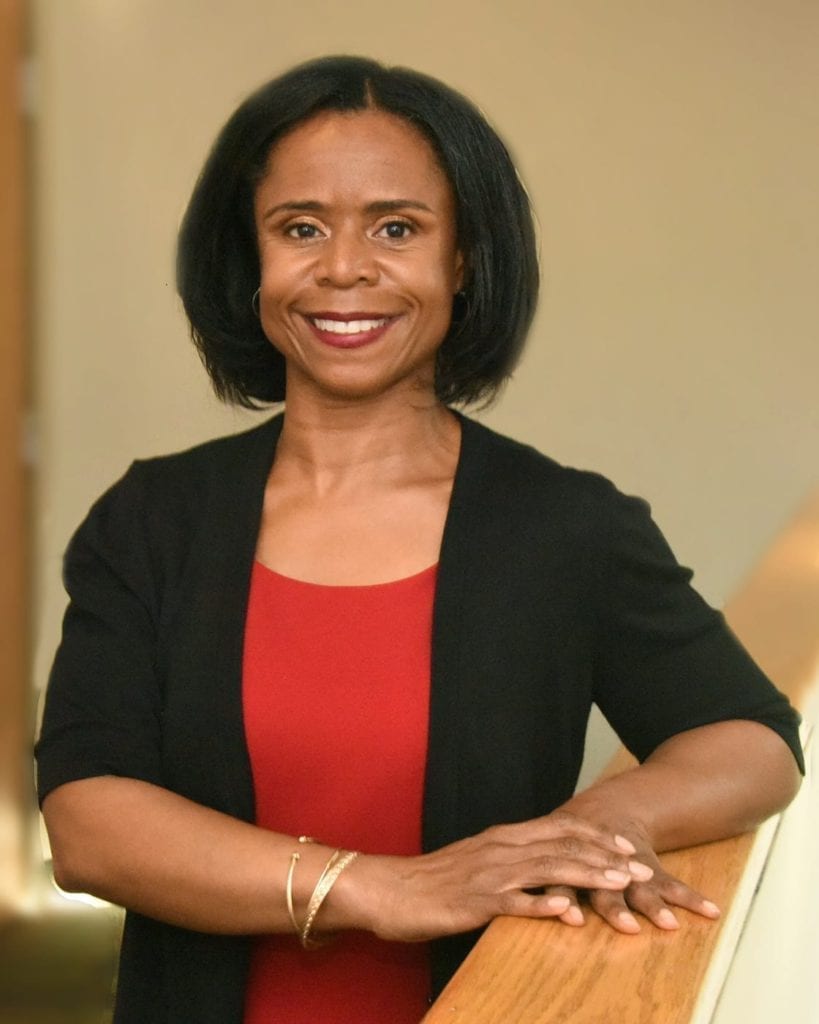MEMPHIS, TN — Michelle Martin, PhD, came to the University of Tennessee Health Science Center (UTHSC) to make a difference in health outcomes for racial and ethnic minorities diagnosed with cancer. As the director of UTHSC’s new Center for Innovation in Health Equity Research: A Community Cancer Alliance for Transformative Change, she plans to partner with local grassroots efforts to help make that happen.
Dr. Martin said, the center, housed in the Department of Preventive Medicine in the College of Medicine at UTHSC, aims to “reduce the cancer burden across the continuum,” including detection, diagnosis, and treatment, and will also focus on prevention. Resources from the UTHSC partnership with West Cancer Center and Methodist Le Bonheur Healthcare will support the growth of the center. It joins other centers recently launched by the UTHSC College of Medicine to address the most-pressing health needs of the community.
“We are going to generate evidence-based ways to engage individuals in healthy behaviors, so that they reduce the risk of developing cancer, and help individuals overcome barriers to having cancer detected early, because the earlier it is detected the better the outcome,” Dr. Martin said. “And for those who are diagnosed with cancer, we aim to help them have the best health care outcome possible.”
Statistics show that many racial and ethnic minorities in the United States are diagnosed later and have higher mortality rates from cancer. Poverty, inadequate access to health care and other socioeconomic factors contribute to this, according to information from the American Cancer Society.
Dr. Martin plans to work with cancer survivors, caregivers, providers and organizations in the Memphis area to determine areas of research that would best benefit cancer patients in the community, and to coordinate efforts already underway. “It is very important for me that this research is done in collaboration with the community,” she said.
For example, Dr. Martin anticipates studying the best methods to help minority individuals with cancer increase their level of physical activity, which can reduce recurrence and long-term symptoms post treatment. She also hopes to study ways to improve the lives of caregivers of patients with cancer, so they can give the best care to their loved ones and take care of their own health.
“Once interventions are generated, it is important that we figure out how to disseminate them and implement them in a long-term way in the health care system or in a community organization,” she said. “More than generating great evidence about what works, we want to make sure it gets used.”
She is involved in state-level activities related to colorectal cancer prevention, and is working with statewide cancer prevention and control initiatives.
“Dr. Martin is passionate and talented,” said David Stern, MD, Robert Kaplan Executive Dean of the College of Medicine. “I have no doubt her work will make a significant difference in cancer outcomes in our community.”
“Dr. Martin was recruited in part to accelerate our efforts to address the long-standing disparity in outcomes for African-Americans diagnosed with cancer,” said Lee Schwartzberg, MD, FACP, executive director of the West Cancer Center. “We believe that through her research, we will make tangible progress to reduce these differences.”
Recruited to UTHSC from the University of Alabama at Birmingham (UAB), Dr. Martin received a Bachelor of Science degree in psychology from the University of Toronto, and a PhD in clinical psychology from UAB. She is associate editor of Ethnicity and Health, a peer-reviewed medical journal, and her writing has appeared in more than 75 peer-reviewed publications.
“When I came to UTHSC and had the opportunity to speak to many individuals, it was apparent that this was a community that was very committed to addressing disparities, and it feels like a place I can bring the knowledge, skills and experience that I obtained at UAB to impact the community here in Memphis,” Dr. Martin said. “The idea of having a center, where I can have a dream and a vision and grow that together with faculty, as well as community members, that was very exciting to me. And I hope I can build something that lives beyond me.”
On February 22, Dean Stern will host a reception on campus to introduce Dr. Martin to the community and officially launch the center.


